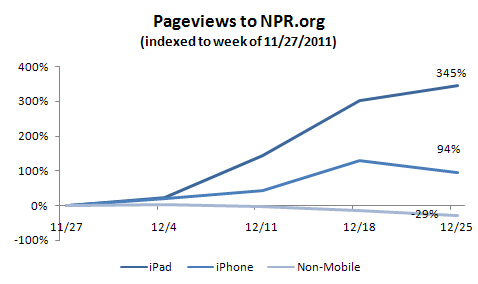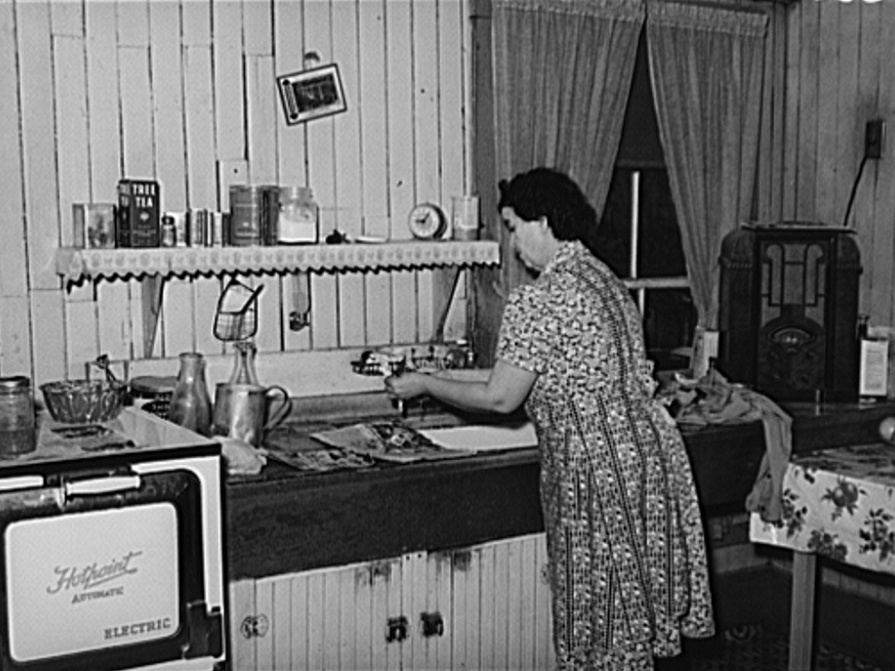Throughout the last four years of the NPR Community, we have endeavored to encourage a conversation of which we can all be proud. And throughout the last four years, we have been happy with the quality of comments on NPR.org, especially when compared to other news outlets with very active communities.
We know we could always take steps to encourage even better quality comments and an even better conversation. So building off of our recently announced changes to our tools and platform, we are also making changes to our moderation experience across the site.
We asked this question in our recent NPR audience survey:
How quickly should we handle moderation when comments are made on an NPR site?
- 37.5% of respondents selected: Comments should appear instantly. Only problem comments should be moderated.
- 50.8% of respondents selected: Comments should be moderated before they appear, even if this causes a short delay.
- 11.7% of respondents selected: Comments on news stories should be moderated more heavily than other kinds of comments.
Relevant selections from our open ended questions on the survey:
"I am looking for intelligent, moderated comments without any of the Internet "chaff" which adds nothing."
"I prefer sites where comments are at least usually thoughtful and free of "trolls" or hateful speech. Usually this requires more moderation by the host site, but allowing readers to vote comments up or down helps elevate better comments to the forefront. Also, I appreciate having the opportunity to report offensive comments. Even if that function is not used often, I think it serves as a kind of deterrent for troublemakers."
"Filtering out unwanted commentors; being able to request a moderator step in to screen out "trojan" commenters — although I would have preferred to have a moderator up front."
"Thoughtful, well-moderated comments and easy-to-follow threads."
"Comments are moderated. This is a difficult, but essential task."
We were surprised to see a full majority of our respondents actually call for more moderation throughout our comment threads. We have always been very careful to balance our desire for an open community with our need to encourage a civil conversation with great quality comments. As we said two years ago when we last expanded our moderation system, we want to make the threads a comfortable place for everyone to participate. We also want to make sure the comment threads provide great content for our audience to read.
In response to this user survey and our ongoing efforts to encourage even better quality comments on our site, we have made the decision to implement full moderation prior to posting on many areas of NPR.org. Your comments will go through moderation before being posted on our news stories and several of our blogs. Your comments on our arts and life, books, music, and many other blog stories will be posted without delay, and only moderated if flagged as inappropriate.
Switching to Disqus will give us a number of other features that we think will improve the conversation on our site. Comments will be threaded, and users will be able to reply to another user's comment directly. Comments will have three sorting options: newest, oldest, and "best," which algorithmically surfaces comments of high quality based on user input and several other input factors.
We are are constantly trying to improve your experience on NPR's website. We have reviewed our Discussion Rules, and will work closely with our moderators as we expand the number of comments that they review before they are published. We expect that all comments in the news areas of the site will be published after a short delay, but not more than 15 minutes.
Our discussion rules are staying largely the same, but we will be making the section on personal attacks a bit more clear. We still will not tolerate users on any of our articles attacking other members of the community, or private citizens who find themselves covered in a news story. As always, we'll give you wider latitude when it comes to criticizing public figures or institutions, but we still ask you to be civil. We know for the most part our users follow these conventions.
We've also reviewed your questions from our last post, and we have several answers:
Mikie Mouser asked about security holes within Disqus. We reviewed his specific complaint, and are pleased to report that Disqus has closed this particular flaw with their latest version, and that is the version we will be implementing. We will keep an eye on this moving forward, and we always invite you to bring up your concerns.
Lynn S asked if comments would be available to Google. Right now, we have no plans to index the comments, but as we've always reminded you in the privacy policy, we do encourage you to remember that all information you do share with the NPR community could become public.
Several people asked who did we survey - we sent our survey out to the subscribers of newsletter at NPR called "NPR Products and Services." We did this because we wanted to reach a larger audience than our listener panel usually includes, and people who specifically have accounts on NPR.org.
Mark I asked many questions about the migration, and I will attempt to answer them all. We are planning to migrate all of the comments (current and past), avatars, first name, last name, and nickname (to be renamed to username for less confusion). Report abuse will still exist, but the functionality will change slightly and users will be able to up-vote and down-vote comments in the thread. The favorites you specified on your profile will still be there, but we are not migrating "friends," "walls," or community groups. There will be an option to follow other users within Disqus, but since the functionality is not a one-for-one match with what we have now, we decided not to migrate existing friend relationships. Finally, your NPR account will have the comments associated with an account on Disqus, but would not become a fully featured "Disqus" account that you would be able to use to login to other enabled websites unless you took additional action on Disqus' website.
Let us know what other questions you have! We welcome your feedback on these changes.
9())
9())
9())
9())
9())

9())
9())

9())
9())
9())
9())

9())
9())
9())
9())



9())
9())

9())
9())


9())
9())
9())
9())

9())
9())
9())



9())
9())


9())
9())